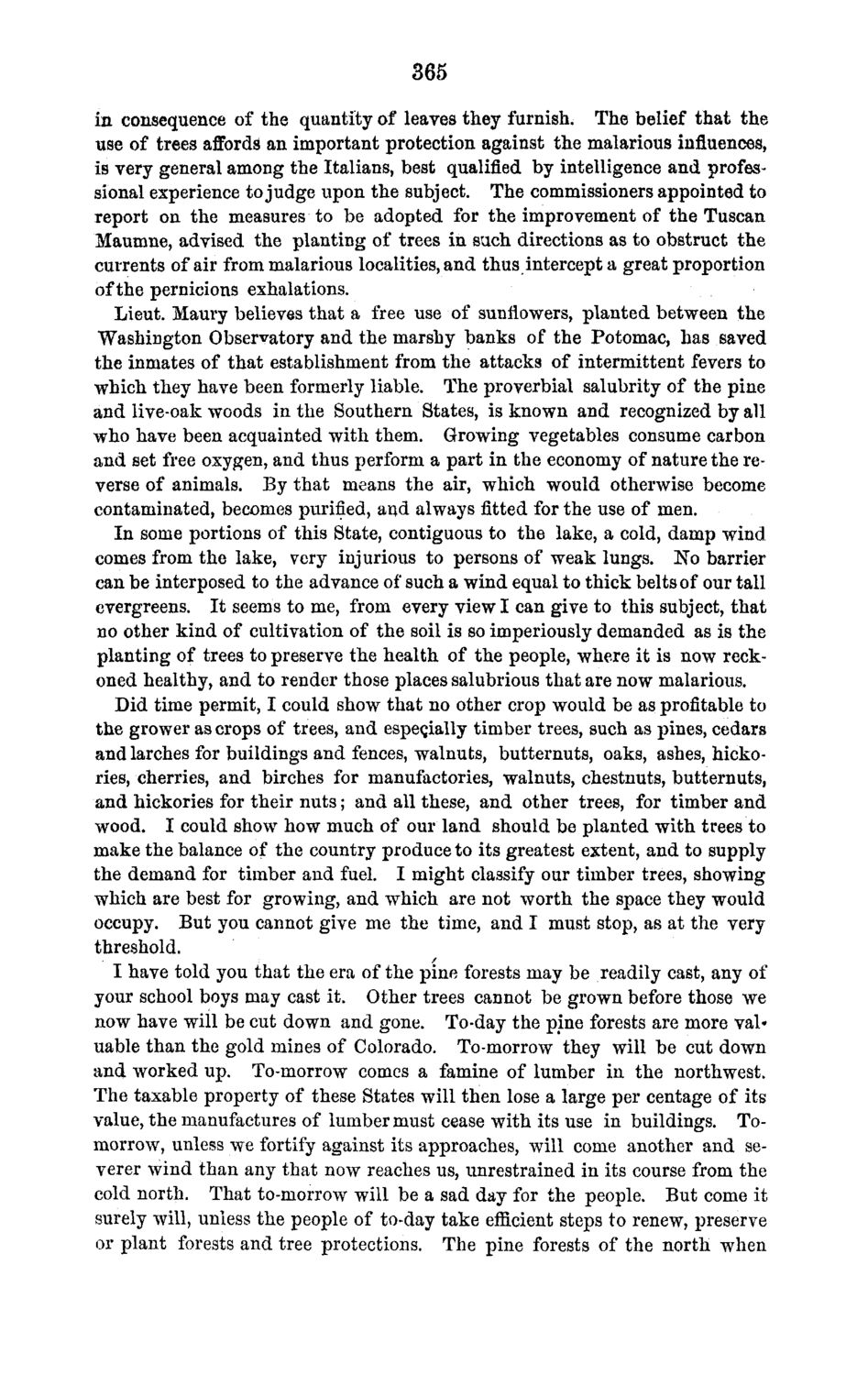| |
| |
Caption: Board of Trustees Minutes - 1870
This is a reduced-resolution page image for fast online browsing.

EXTRACTED TEXT FROM PAGE:
365 in consequence of the quantity of leaves they furnish. The belief that the use of trees affords an important protection against the malarious influences, is very general among the Italians, best qualified by intelligence and professional experience to judge upon the subject. The commissioners appointed to report on the measures to be adopted for the improvement of the Tuscan Maumne, advised the planting of trees in such directions as to obstruct the currents of air from malarious localities, and thus intercept a great proportion of the pernicious exhalations. Lieut. Maury believes that a free use of sunflowers, planted between the Washington Observatory and the marshy banks of the Potomac, has saved the inmates of that establishment from the attacks of intermittent fevers to which they have been formerly liable. The proverbial salubrity of the pine and live-oak woods in the Southern States, is known and recognized by all who have been acquainted with them. Growing vegetables consume carbon and set free oxygen, and thus perform a part in the economy of nature the reverse of animals. By that means the air, which would otherwise become contaminated, becomes purified, and always fitted for the use of men. In some portions of this State, contiguous to the lake, a cold, damp wind comes from the lake, very injurious to persons of weak lungs. No barrier can be interposed to the advance of such a wind equal to thick belts of our tall evergreens. It seems to me, from every view I can give to this subject, that no other kind of cultivation of the soil is so imperiously demanded as is the planting of trees to preserve the health of the people, where it is now reckoned healthy, and to render those places salubrious that are now malarious. Did time permit, I could show that no other crop would be as profitable to the grower as crops of trees, and especially timber trees, such as pines, cedars and larches for buildings and fences, walnuts, butternuts, oaks, ashes, hickories, cherries, and birches for manufactories, walnuts, chestnuts, butternuts, and hickories for their nuts; and all these, and other trees, for timber and wood. I could show how much of our land should be planted with trees to make the balance of the country produce to its greatest extent, and to supply the demand for timber and fuel. I might classify our timber trees, showing which are best for growing, and which are not worth the space they would occupy. But you cannot give me the time, and I must stop, as at the very threshold. I have told you that the era of the pine forests may be readily cast, any of your school boys may cast it. Other trees cannot be grown before those we now have will be cut down and gone. To-day the pine forests are more valuable than the gold mines of Colorado. To-morrow they will be cut down and worked up. To-morrow comes a famine of lumber in the northwest. The taxable property of these States will then lose a large per centage of its value, the manufactures of lumber must cease with its use in buildings. Tomorrow, unless we fortify against its approaches, will come another and severer wind than any that now reaches us, unrestrained in its course from the cold north. That to-morrow will be a sad day for the people. But come it surely will, unless the people of to-day take efficient steps to renew, preserve or plant forests and tree protections. The pine forests of the north when
| |